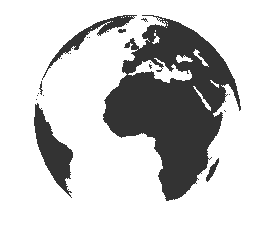fabric
Product Overview:
Jilong mainly deals in various woven dyed fabrics such as pure cotton, linen cotton, cotton brocade, Tencel, and various kinds of printing. The quality and service of our products have been well received by our customers.
Category:
High branch interweaving class
key word:
High count cotton fabrics | Tencel fabrics | Cotton | Tencel cotton elasticity
吉龙纺织
Details
Differences between knitted fabrics and woven fabrics Knitted fabrics and woven fabrics have their own unique characteristics in terms of processing technology, fabric structure, fabric characteristics, and finished product uses due to different weaving methods. Here are some comparisons.
(1) The composition of the fabric structure: (1) Knitted fabric: the yarn is sequentially bent into coils, and the coils are intertwined to form a fabric, and the process of forming the coils from the yarns can be carried out horizontally or vertically. It is weft knitted fabric, and longitudinal knitted fabric is called warp knitted fabric. (2) Woven fabric: It is a fabric made of two or more sets of mutually perpendicular yarns interwoven at a 90-degree angle for warp and weft. The longitudinal yarns are called warp yarns, and the horizontal yarns are called weft yarns.
(2) Basic unit of fabric organization: (1) Knitted fabric: The loop is the smallest basic unit of the knitted fabric, and the loop is composed of the loop stem and the extension line in a space curve. (2) Woven fabric: Each intersection point between warp and weft is called a weave point and is the smallest basic unit of a woven fabric.
(3) Characteristics of fabric organization: (1) Knitted fabric: Because the loop is formed by the bending of yarn in space, and each loop is composed of one yarn, when the knitted fabric is subjected to external tension, such as longitudinal stretching, the loop The bending of the coil changes, and the height of the coil increases, while the width of the coil decreases. If the tension is transversely stretched, the situation is the opposite. The height and width of the coil can obviously be converted to each other under different tension conditions. Therefore, knitting The extensibility of things is large. (2) Woven fabric: Because the warp and weft yarns are intertwined with some bending, and the moraine is bent in the direction perpendicular to the fabric plane, the degree of bending is related to the mutual tension between the warp and weft yarns, as well as the yarn stiffness. When the woven fabric is subjected to External tension, such as longitudinal stretching, the warp tension increases, the bending decreases, and the weft bending increases, such as longitudinal stretching, until the warp is completely straightened, and the fabric shrinks laterally. When the woven fabric is stretched laterally by external tension, the tension of the weft yarn increases, the bending decreases, and the warp yarn bending increases, such as the lateral stretching continues until the weft yarn is completely straightened, and the fabric shrinks longitudinally. The warp and weft yarns do not change, unlike knitted fabrics.
Consulting Service






